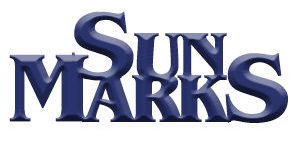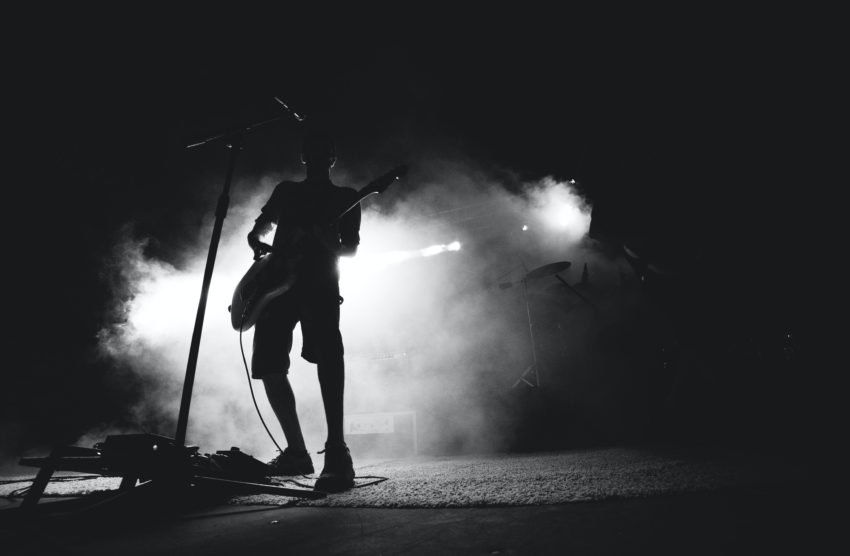On a tour—on a normal tour—Richard would try to go on a daily run; outside, on real roads, in the real air. It was how he’d get a sense of a city, even when the tour consumed the day, even with the smooth-headed Rengle guards on the street corners. He’d run, with just music in his ears, and the rhythm of his feet, through the downtown of whichever city they were in. It was his escape valve; his release from a tour’s dull gray ennui.
But this particular tour—20 light years from Earth, on the Occupier’s Planet—
“We have heard about the terrorists that do terrible things. Blow up transport stations and banks and public places. Kill people. Even some here have started doing that, too. We were told that the army is used to stop the violence.”
The Rengle guards kept the band confined in the land yacht; and already the tension hung in the air like dry ice smoke. Imagine what this would be like, for years at a time, Richard thought. What bands like the Beatles had endured. The surprise wasn’t that the Beatles had broken up; it was that they stuck it out as long as they had.
That was without even mentioning Quentin, hired to fill in for Steve, still in a Rengle holding pen back on Earth. Not only did Quentin possess typical lead guitarist pathologies; he was also 20 years younger than the rest of them; 20 years more impulsive; 20 years less wise. But he’d had the idea to add a few new songs to their setlist, mid-tour; which required rehearsal space. The Rengle—to everyone’s surprise—had acquiesced, and so the caravan pulled into an empty warehouse somewhere along some backwoods Rengle highway.
Richard stood on the top step of the cruiser watching the crew, black t-shirts contrasting with bald pale-gray skin. The one in the “Road Manager” t-shirt set up the mixing board and monitor system; and other Rengle he’d never met set up his drums, Keith’s keyboard rig, Quentin’s pedal board and amp cabs. As they set up the rigs, they tested them out by playing riffs and bits of songs.
He knocked on the hatch. “Guys. Check this out.” Keith and David came down the steps, and stood next to Richard. Quentin hung back, staying just inside the doorway.
“They’re pretty quick at this,” Keith remarked. “Don’t remember our own crew being this quick at setting up our rigs.”
“Must be that big long thumb,” David said.
“Maybe fear of what happens if they’re not efficient,” Keith said.
“Yeah—there’s that,” David replied.
“But check this out—three fingers, and they still find a way to play a six-string guitar,” Richard said.
“All right—cool it,” Keith said, holding up a hand.
The crew finished setting up the rig, and then launched into a version of an Earthrise song, “Standing Up.”
“They’re pretty good,” David said to Keith.
“Surprised they’d even ever heard that song,” Keith said. “Let alone play it.”
“The censors never let us release the song—we only play it live,” David said. “How’d they even know it?”
Good question, Richard thought. Even their own fans—their human fans—on Earth wouldn’t know the song unless they’d been to an Earthrise concert. Never been released. Never even uploaded to the Net, as far as anyone knew, because doing so wouldn’t just endanger the band but also anyone who’d put it out there.
They spent four hours on the new songs. Keith, David, and Richard—over Quentin’s objections—invited the crew to act as an “audience,” even as they worked out kinks and worked through the older songs. Behind his kit at the back, Richard had a pretty good sense of everything happening on stage in front of him. Even if he (mostly) only saw his bandmates’ rears. Going through the songs—even as the rest of them worked off rust and forgotten transitions, Richard noticed that the kid—Quentin—as annoying as he was—could play. It wasn’t just that he’d prepared for every note on the set list they sent him when they were preparing for this trip. He knew everything in the added songs. And what he didn’t know—you could hardly tell because he’d come up with something you’d thought ought to be there. Richard shook his head. It wasn’t fair—Richard had to work, focus on every note, every beat, every subdivision of rhythmic time. But this kid—who seemed to know little else—this kid could just play.
When they finished, the crew instantly broke the rig down and packed it up. Richard tried to get out of the way as fast as he could, and found himself next to Quentin, separated from Keith and David. Quentin held his Les Paul by the neck. Stevie used Fenders, mostly; the heavier guitar was one of the major shifts in the band’s sound.
“Not a bad way to spend a few hours,” Quentin said. “If it wasn’t for all the grey-baldies.”
“Whatever,” Richard said. He walked away from Quentin, and back toward where the crew was heading back to the crew yacht. 15 of them in the same sized space the 4 band members shared. Can’t be pleasant, Richard thought. He said to Gasat: “You guys in the crew do a fantastic job,” he said. “Think you’d mind joining us for a drink?”
They sat in a bunch on folding chairs—3 band members and 15 Rengle, drinking bad beer and decent scotch. Scuffed concrete painted gray on the floor, walls and vaulted ceiling made of some material Richard couldn’t identify. The warehouse so big—like those old NASA hangars—it almost felt like outside, complete with a damp evening breeze. But it wasn’t outside; even as he’d hoped to see at least a little of the place—outside the arenas and the grey-green blur outside the (tinted-over) cruiser windows.
“So, what I want to know,” Richard began, “is, why—what is it that you’ve got these city centers, and then huts, and then fields, all in the same order, all over, everywhere we pass?”
“The Masters built the cities,” Gasat said. “And they built the farms. And they built everything in that order. All over the world. The huts, we used to live in before. Some people still do.”
“So—I don’t understand—didn’t your people build all this?” Richard said. Aliens show up in orbit with big warships, tell you they have FTL travel and energy weapons, and take over your governments. And then they didn’t even invent the stuff? “What are these ‘masters’?”
The Rengle looked at each other, perplexed. “You don’t know?” Gasat asked. “What do they teach you on Earth about history?”
“Rengle history? Nothing.”
“Maybe 400 years ago. The Masters came. They built all this—all these things. The cities, the ships, the machines. Mabye 30 years ago, they left.”
“And they left all the tech behind?” David asked.
Gasat nodded.
“Even most of us speak their language,” another one said. “A few keep the old language.”
“You mean, when you’re not speaking English,” Keith commented.
Gasat nodded.
“So, these ‘masters’ conquered you, built this technology, then suddenly left,” Richard said. “What happened when they left?”
One of the older Rengle spoke up, in their own language. Gasat translated: “Most of us here are too young to remember. But Rikand was a kid when it happened. He says that, in a few months, they all packed up, they were all gone. No one knew why. They left almost everything behind. And since we’d served them, they’d trained a lot of people in how to work the machines. There had been a resistance, but all the leaders who worked with the Masters left with them. So only SanGarer and the other Resistance leaders were left to lead us.”
“So then why did you invade Earth?” David asked.
More murmurs among the Rengle. Then one of them said, “SanGarer and the others found out about you in the Master’s records. We sent the army to protect you. Because SanGarer knew that the Masters would be coming to enslave you, too.”
“If the idea was mutual protection, then why are we under occupation?” Richard said.
Gasat translated: “We have heard about the terrorists that do terrible things. Blow up transport stations and banks and public places. Kill people. Even some here have started doing that, too. We were told that the army is used to stop the violence.”
“Chicken and egg,” David said.
To the Rengles’ confused expressions, Richard explained, “Earth animal—female lays something called an egg; the new chicken is born from it. But how do you get the first egg, for the first chicken, without there being a chicken first? Here, the question is: Would there be a Subway—I mean the resistance—without the occupation?”
“We are told: You are friends; you are not occupied,” Gasat said.
Richard replied, “I can tell you that we live under occupation. It’s like what those Masters did to you.” He rubbed his face. “You hear our songs—you even did one before, when you sound-checked—about it. We can’t even release that one on Earth because it could get us arrested.”
“Is there labor conscription?” one of the others asked.
“No,” Richard said.
“Yes,” Quentin said.
Richard turned to look. Quentin stood at the top of the stairs by the hatch.
“Computer engineers were rounded up and brought here,” Quentin said. “My dad was one of them. They came here and wired the place. Built all the computers and networks on the planet.”
“I had no idea,” Richard said. Surprised that this was news to these Rengle, he wondered how the average Rengle-in-the-street would feel about being to Earth what their Masters had been to them.
The party broke up shortly after that, after they’d drained most of the scotch bottles. Keith, David, and Richard retired to the yacht, and the Rengle roadies packed up the folding chairs.
Richard opened his tablet. Steve had sent an email and another video clip—this one of the well-known writer Sharon Eisen giving a reading in a small café, possibly somewhere in the capital. Didn’t know they’d dragged her out here too, Richard thought.
“So, that’s what they let me put in my books on Earth,” she said to a crowd of Rengle. “Now, let’s talk more frankly. Who’s got questions?” A raucous shot went up from the crowd.
He paused the clip and read the rest of the email. Steve wrote, “I actually got this clip from one of the guards—it’s not circulating on Earth. But I’ve made ‘friends’ with some of the guards, and they’ve been showing me this stuff that they’re getting from back home. Huge interest in human writers.”
“Think they’re wasting their time with writers,” Richard wrote back.
Later, Steve wrote back, “You sure about that? The right word in the right ear—or maybe the right paragraph in front of the right eyes—can start something. Cronkite on Vietnam. Gorbachev and Yeltsin. If that wasn’t the case, why would authoritarians even bother at all with censorship? Yet our vichy ‘government’ does it all the time. They think your words could cause them trouble, right?”
On the throne behind the drum kit, behind the footlights, Richard could hear the audience in his monitor mix, but couldn’t see anything past the third row—all washed out by the stage lights. Except the lighters when they did the ballad—the one ballad he’d written after that bad break-up with Rebecca. He hated that song—no, he hated doing it—it just didn’t really fit with the rest of the set. But it had been one of their few mainstream hits, and they always had to have it in the set. They were half-way through—at the first chorus—of “American Heart” when Richard thought he heard something coming from back stage. They were ramping up and through the chorus, Richard adding harmony from behind the drum kit: “Defeat at the start/ Was just the first part/ The Empire thought it’d won/ But in eight years, they’d run/ Beaten by American heart”.
He thought he heard something crash—loud enough to come through the monitor mix—perhaps the pyrotechnics malfunctioning? David and Quentin both came toward the back of the stage—they’d heard it too. The three of them looked at each other. David shrugged. Richard nodded at them both, as if to say, “Rule 1: Keep going.” Through the rest of the song, and the rest of the set.
David shrugged. Richard nodded at them both, as if to say, “Rule 1: Keep going.” Through the rest of the song, and the rest of the set.




